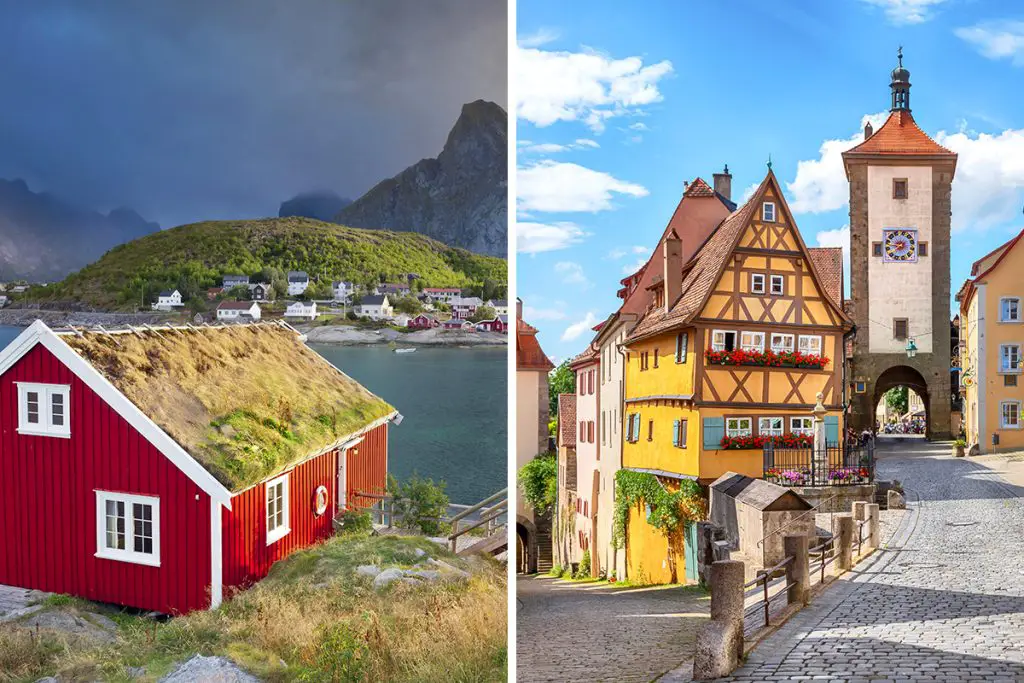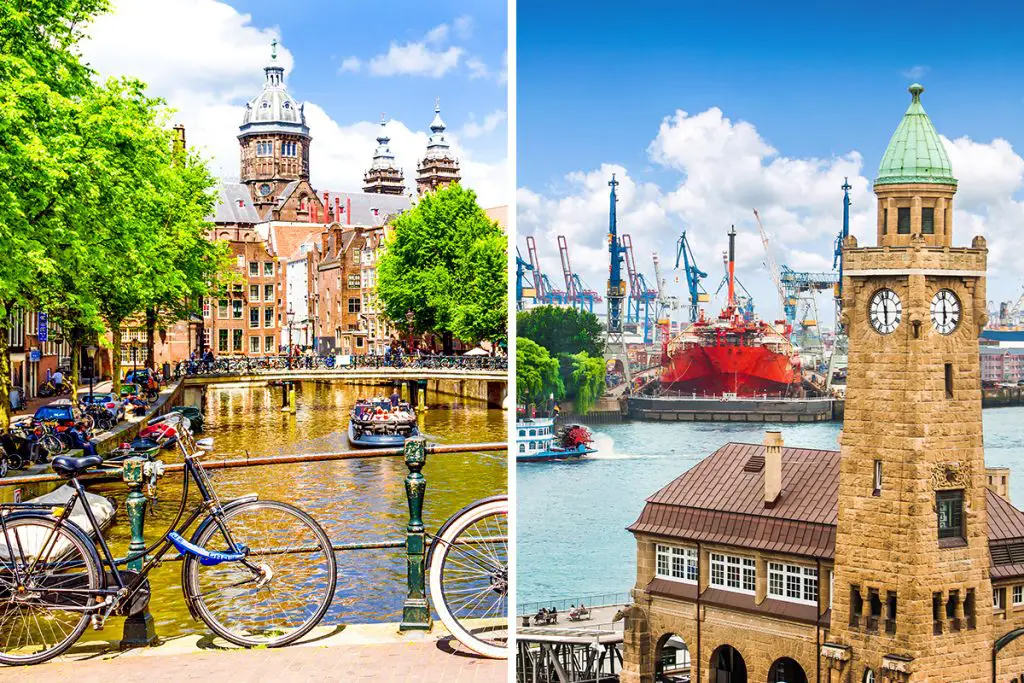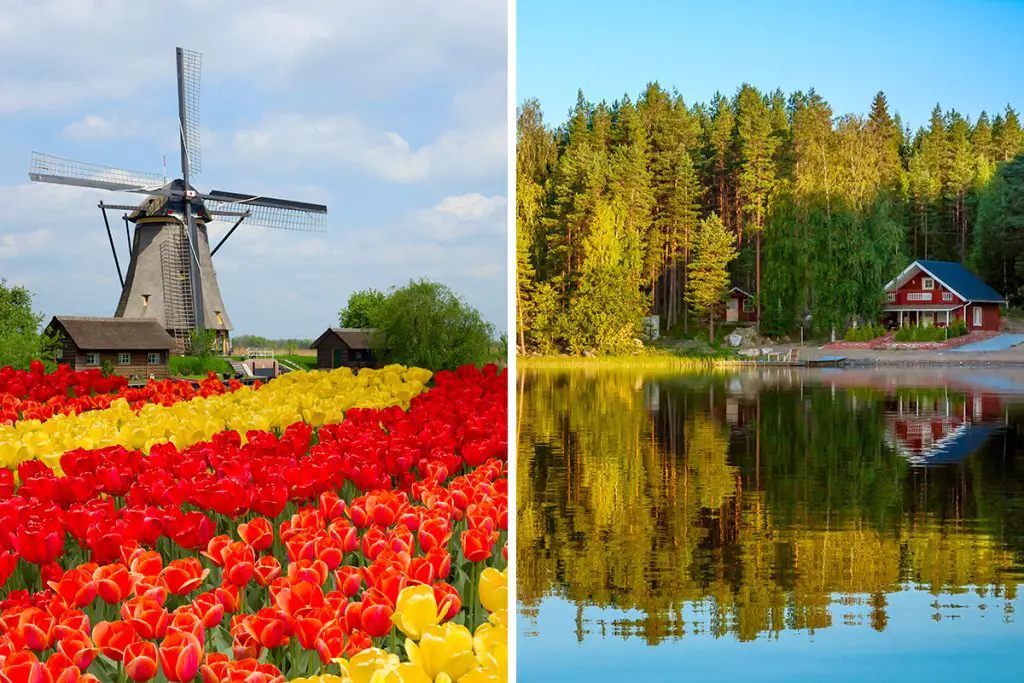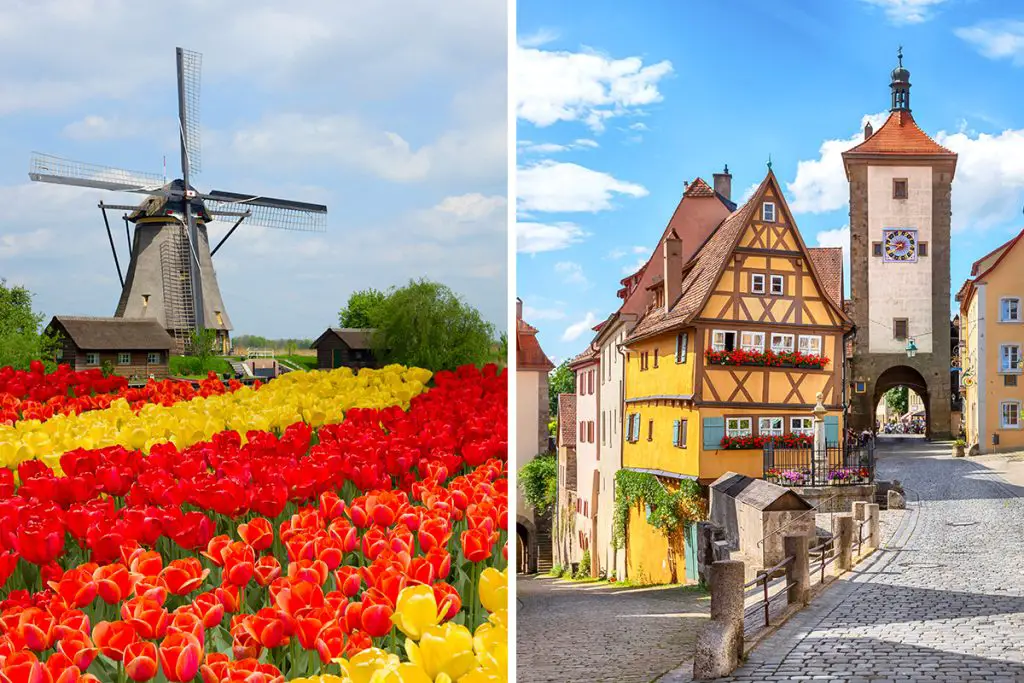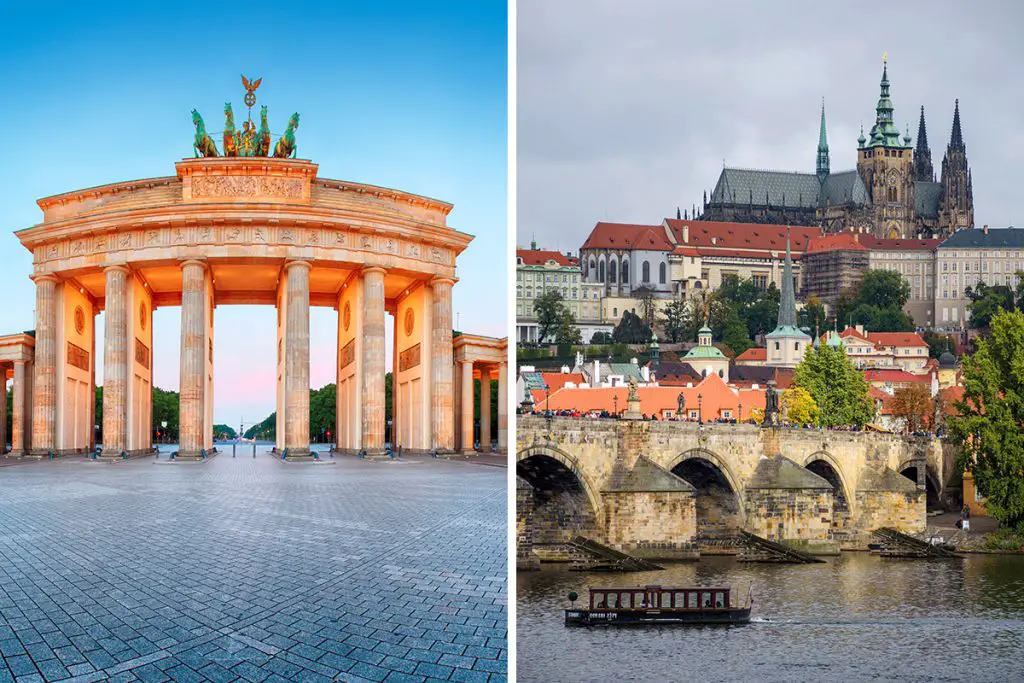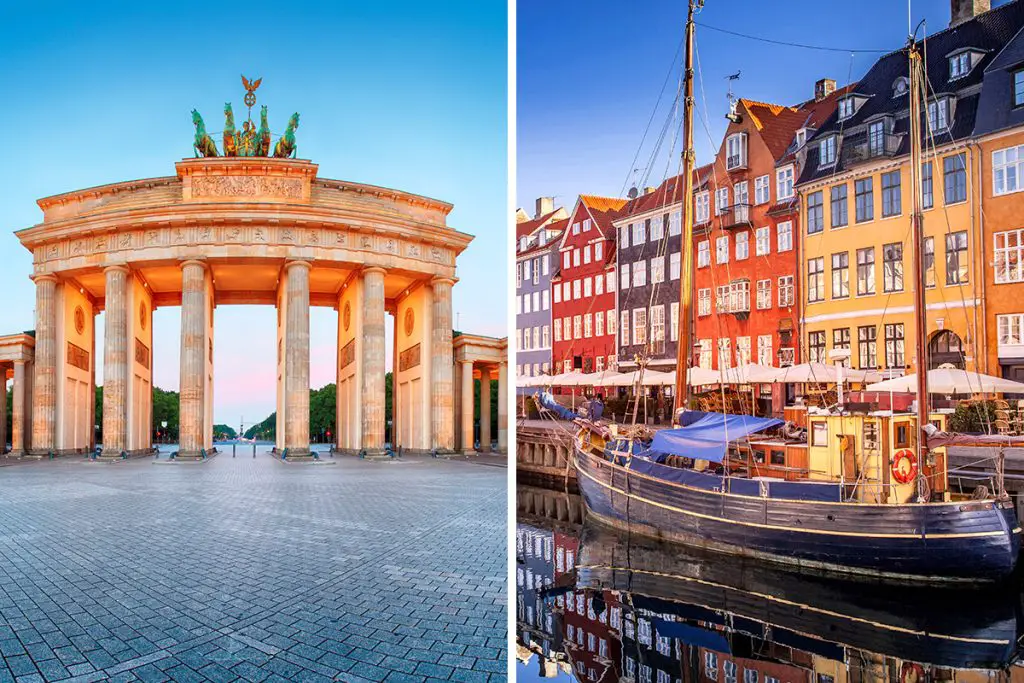Munich and Vienna, each holding a kaleidoscope of experiences, have a lot to offer. From history and culture to delectable cuisines, these cities have it all. So, fasten your seatbelts and get ready to embark on an exciting journey! It’s time to dive deeper and see what Munich and Vienna have in store for you.
History & Culture
Munich, the capital of Bavaria in Germany, and Vienna, the capital of Austria, are both steeped in history and culture. Munich, known for its centuries-old buildings and numerous museums, has a history that dates back to the Middle Ages. On the other hand, Vienna, with its imperial palaces and baroque streetscapes, carries a strong sense of its past as the heart of the Habsburg Empire.
Both cities have their unique cultural traits. Munich is famous for its annual Oktoberfest celebration, a two-week festival dedicated to all things beer. The city is also home to a vibrant arts scene, with many art galleries and theatres. Munich’s culture is a blend of traditional Bavarian customs and modern German influences.
Vienna, on the contrary, is renowned for its contributions to music. Known as the City of Music, it has been home to many famous composers like Mozart and Beethoven. Vienna’s culture is a mix of historical traditions and contemporary developments, with an emphasis on music, arts, and intellectual thought.
In terms of historical architecture, both cities are rich. Munich showcases a mix of historic and modern architecture, with landmarks such as the New Town Hall and the old-world charm of the Altstadt (Old Town). Vienna, however, is a UNESCO World Heritage site, boasting grand imperial palaces and majestic buildings like the Schönbrunn Palace and Hofburg.
Despite their differences, both cities share a common respect and preservation of their historical and cultural heritage. Whether it’s the rustic charm of Munich or the imperial grandeur of Vienna, both cities offer unique cultural experiences that make them worth exploring.
To sum it up, if history and culture are what you seek, both Munich and Vienna are excellent choices. Their rich heritage and diverse cultural scenes will leave you with an appreciation for their past and a taste of their vibrant contemporary life. The question is, which city’s history and culture resonate with you the most?
Attractions & Activities
If you’re looking for attractions and activities that would create unforgettable memories, both Munich and Vienna have plenty to offer. Let’s dig deeper to see what you can expect in each city.
Munich, your first potential destination, is full of fascinating attractions. The city’s crown jewel is undoubtedly the Nymphenburg Palace, a Baroque masterpiece that stands as a testament to the city’s royal past. The palace, with its elegant rooms and sprawling gardens, is a perfect place for you to explore and take stunning photos.
Another must-see attraction in Munich is the Deutsches Museum. Here, you can spend hours delving into exhibits showcasing the wonders of science and technology. If you’re a fan of BMW cars, don’t miss out on the BMW Museum, where you can get a close look at the brand’s engineering marvels.
Now, let’s take a look at Vienna. The city is home to the historic Vienna State Opera, where you can enjoy world-class performances. To get a feel of the city’s imperial past, you can visit the Belvedere Palace. The palace, along with its beautiful gardens, offers a glimpse into the lavish lifestyle of past royalty.
Another must-visit in Vienna is the Prater amusement park. The park’s iconic Giant Ferris Wheel is a sight to behold, and the view from the top is simply breathtaking. If you’re a fan of museums, the MuseumsQuartier is your place to be, housing several notable museums within a single district.
In summary, both Munich and Vienna offer a myriad of attractions and activities that will keep you entertained throughout your visit. Whether you prefer exploring royal palaces, delving into science and technology, or enjoying amusement park rides, you’ll find something to your liking in both cities.
Eating, Drinking & Nightlife
A trip to Munich or Vienna wouldn’t be complete without indulging in their unique food, drink, and nightlife scenes. Let’s compare what you can expect in each city.
Munich’s culinary scene is famous for its hearty Bavarian cuisine. You’ll love trying Weisswurst, a traditional Bavarian sausage, or Pretzels, which are usually enjoyed with mustard. If you have a sweet tooth, don’t miss out on Apfelstrudel, a delicious apple dessert.
Vienna, on the other hand, is renowned for its elegant cafes and pastries. You’ll adore the Sachertorte, a rich chocolate cake that’s a Viennese classic. For a savory treat, try the Wiener Schnitzel, a breaded veal cutlet that’s a staple of Austrian cuisine.
When it comes to drinks, Munich is synonymous with beer. Visiting one of the city’s beer gardens, where you can enjoy a mug of locally brewed beer, is a must. In Vienna, you’ll want to try the local wines, often enjoyed in traditional wine taverns called “Heurigen”.
As for nightlife, Munich offers everything from trendy clubs in the Glockenbachviertel district to traditional Bavarian music in the city’s beer halls. Vienna’s nightlife is equally diverse, with its Innere Stadt district offering sophisticated cocktail bars, while the Prater area is home to some of the city’s most popular nightclubs.
In summary, whether you’re a foodie, a drink connoisseur, or a nightlife enthusiast, both Munich and Vienna have something to offer. From traditional Bavarian food and beer in Munich to elegant Viennese cafes and wine taverns in Vienna, you’re in for a treat.
Shopping
Shopping is an integral part of any travel experience, and both Munich and Vienna offer unique shopping experiences. Let’s see how these two cities compare.
In Munich, you’ll find a mix of luxury boutiques and department stores, particularly in the Maximilianstrasse and Kaufingerstrasse areas. If you’re looking for traditional Bavarian souvenirs, the Viktualienmarkt is a must-visit.
On the other hand, Vienna boasts the famous Mariahilfer Strasse, one of the city’s main shopping streets. Here, you’ll find a mix of international brands and local boutiques. For a more upscale shopping experience, the Graben and Kohlmarkt streets offer high-end boutiques and jewelry stores.
If you’re a fan of markets, both cities have you covered. Munich’s Viktualienmarkt is a feast for the senses, offering everything from fresh produce to local crafts. Vienna’s Naschmarkt, on the other hand, is a must-visit for foodies, offering a range of local and international delicacies.
In conclusion, whether you’re looking for high-end boutiques, bustling markets, or unique souvenirs, both Munich and Vienna offer diverse shopping experiences that cater to every preference and budget.
Accommodation
Finding a great place to stay is an important part of your travel experience. Let’s look at what Munich and Vienna have to offer in terms of accommodation.
Munich’s accommodation options range from luxury hotels in the Altstadt-Lehel district to budget-friendly hostels in the Ludwigsvorstadt-Isarvorstadt district. If you’re looking for a more authentic stay, you might enjoy the guesthouses scattered around the city that provide a real taste of Bavarian hospitality.
Vienna, on the other hand, boasts a variety of accommodation options from opulent hotels located in the Innere Stadt district to budget-friendly pensions located outside the city center. For a truly Viennese experience, you might consider staying in a classic Viennese apartment, many of which are available for short-term rental.
Both cities offer a good range of family-friendly options. Munich’s Englischer Garten area, with its wide open spaces and proximity to the city’s zoo, is a great option for families. In Vienna, the MuseumsQuartier area offers family-friendly accommodation and is close to many of the city’s top attractions for kids.
In conclusion, whether you’re looking for luxury, budget, or family-friendly accommodation, both Munich and Vienna offer a wide range of options to suit your needs and preferences.
Family-Friendliness & Children’s Activities
Traveling with family? Let’s compare the family-friendliness and children’s activities in Munich and Vienna.
Munich is a fantastic city for families. Kids will love exploring the Deutsches Museum, the world’s largest museum of science and technology. Don’t miss the Hellabrunn Zoo, home to over 19,000 animals from all over the world.
Vienna, too, is a great destination for families. The Schönbrunn Palace Zoo, the oldest zoo in the world, is a must-visit. The Prater amusement park, with its iconic Giant Ferris Wheel, is another favorite among kids.
Both cities offer plenty of outdoor spaces for kids to burn off energy. In Munich, the Englischer Garten is a fantastic place for a family picnic. Vienna’s Prater Park offers vast green spaces, playgrounds, and even pony rides.
In summary, both Munich and Vienna are packed with family-friendly attractions and activities that will keep your little ones entertained and engaged.
Getting There & Getting Around
Getting to and around your destination is an important factor to consider. Let’s compare Munich and Vienna in terms of accessibility and transportation.
Getting to Munich can be straightforward. Munich International Airport is one of the busiest in Europe and is served by numerous international airlines. It’s approximately 29 miles (47 kilometers) from the city center, and you can get to the city center by train in about 40 minutes.
On the other hand, Vienna International Airport is also well-connected to major cities around the world. It’s roughly 12 miles (19 kilometers) from the city center, and the City Airport Train can get you to the city center in about 16 minutes.
Getting around in both cities is convenient thanks to their efficient public transportation systems. Munich’s system consists of the U-Bahn (underground railway), S-Bahn (suburban train), trams, and buses. Vienna’s public transportation includes the U-Bahn, trams, and buses as well.
In conclusion, both Munich and Vienna are easily accessible from abroad and offer efficient public transportation systems, making it easy for you to explore all the attractions that these cities have to offer.
Weather
When planning your travels, understanding the weather of your destination is key. So, let’s delve into the climate of Munich and Vienna.
Munich has a temperate seasonal climate, with moderate to heavy rainfall throughout the year. Winter, from December to February, can be quite chilly, with temperatures averaging 30°F to 34°F (-1°C to 1°C). However, the summer, from June to August, is quite pleasant, with temperatures ranging from 64°F to 75°F (18°C to 24°C).
On the other hand, Vienna experiences a humid continental climate. Winters in Vienna, also from December to February, are somewhat milder than in Munich, with average temperatures ranging from 30°F to 37°F (-1°C to 3°C). Summers, from June to August, are warm and sometimes hot, with temperatures often reaching between 68°F and 79°F (20°C to 26°C).
If you’re a lover of winter sports, Munich might be a better choice with its colder winters and proximity to the Bavarian Alps. Vienna, with its warmer summers, is ideal for outdoor exploration and enjoying the city’s many parks and gardens.
In conclusion, whether you prefer the colder winters of Munich or the warmer summers of Vienna, both cities offer a range of weather conditions to suit different preferences.
Safety
Safety is a primary concern when traveling. Let’s take a look at how Munich and Vienna fare in terms of safety.
Munich is considered one of the safest cities in Germany. Violent crimes are relatively rare, and petty crimes like pickpocketing are not common, though it’s always wise to keep an eye on your belongings, especially in crowded areas.
Vienna is also renowned for its safety, consistently ranking as one of the safest cities in the world. The crime rate is low, but like any major city, it’s advised to stay alert, especially when in crowded places or at night.
In terms of traffic safety, both cities are quite safe. Munich and Vienna have excellent public transportation systems, and traffic rules are strictly followed. The cities are also very pedestrian and cyclist-friendly, with well-maintained sidewalks and bike lanes.
In conclusion, both Munich and Vienna are generally safe cities to visit. However, it’s always important to stay vigilant, be aware of your surroundings, and follow local laws and customs.
Cost
When planning a trip, understanding the cost is critical. Let’s explore how your wallet might fare in Munich and Vienna.
Munich is one of Germany’s more affluent cities, and the cost reflects this. Expect to pay around 70 euros ($80) per day on average for food, local transportation, and entertainment. Accommodation costs can vary, but a mid-range hotel might cost around 100 euros ($114) per night.
Vienna, while also not cheap, tends to be slightly more affordable than Munich. Daily expenses for food, local transportation, and entertainment can be about 60 euros ($68) per day. A similar standard hotel might be around 80 euros ($91) per night.
Eating out in both cities can be a treat. In Munich, a meal at a mid-range restaurant might cost around 15 euros ($17), while in Vienna, you could pay about 12 euros ($14).
When it comes to public transportation, both cities offer affordable and efficient services. A single ticket in Munich costs around 3 euros ($3.40), while in Vienna, it’s slightly cheaper at 2.40 euros ($2.70).
In conclusion, while both cities can be a bit pricey, Vienna offers slightly more affordable options. However, the cost can vary depending on your personal preferences and travel habits.
Which Is Better – Munich or Vienna?
Choosing between Munich and Vienna can be a tough call. Each city has its unique charm and appeal, and the best choice depends on what you’re looking for in a vacation.
When it comes to history and culture, both cities are rich in heritage, with Munich offering a blend of traditional Bavarian culture and modern lifestyle, and Vienna being a beacon of music and art.
If you are interested in attractions and activities, Munich’s proximity to the Alps can offer unique outdoor experiences. However, Vienna’s warmer summers make it a perfect spot for outdoor exploration and enjoying the city’s parks and gardens.
Munich might be a better choice if you’re a foodie looking for hearty traditional cuisine and world-class beer. However, if you have a sweet tooth, Vienna with its famous pastries and coffee houses could be your food paradise.
In terms of accommodation, both cities offer a wide range of options, from budget hostels to luxury hotels. However, for a slightly more affordable trip, Vienna might be a better choice.
If you’re traveling with children, both cities are family-friendly, offering a variety of children’s activities. However, the choice between the two would depend on the specific interests and preferences of your family.
In terms of getting there and getting around, both cities have excellent public transportation systems, and both are pedestrian and cyclist-friendly.
Weather-wise, Munich’s colder winters make it an ideal destination for winter sports enthusiasts, while Vienna’s warmer summers are perfect for outdoor activities.
Safety-wise, both Munich and Vienna are very safe cities, but as always, being vigilant and aware of your surroundings is important.
In terms of cost, Vienna tends to be a slightly more affordable option than Munich. However, the overall cost can vary depending on your personal preferences and travel habits.
In the end, your choice between Munich and Vienna would depend on your personal interests, preferences, and budget. Both cities offer a unique blend of history, culture, and modern amenities, ensuring a memorable travel experience.


